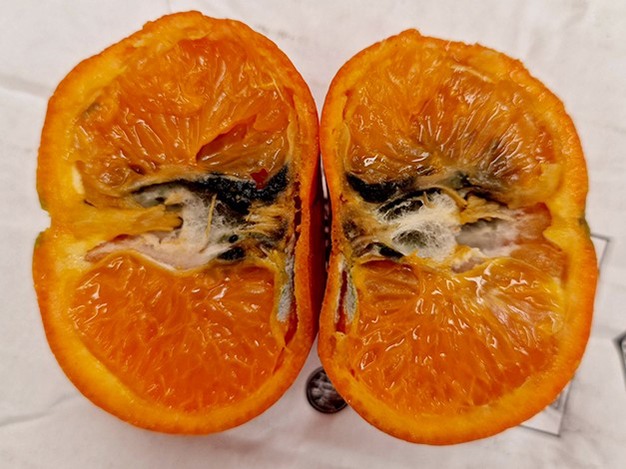The European Commission has confirmed the first interception of a shipment of pomegranates with false moth (Thaumatotibia leucotreta). The shipment originated from Morocco, a third country that -up until now- was considered a free zone of this quarantine plague. AVA-ASAJA expressed its "extreme concern about the very serious phytosanitary risk" that this poses. The organization also demanded that the European Union "immediately open an investigation to verify the real scope of the threat and, where appropriate, take the appropriate measures to prevent this pest from reaching Europe."
The false moth is devastating for dozens of crops and tree species. "Its entry and spread in the EU would cause an average loss of 26% of citrus production. It also causes serious damage to other agricultural products such as stone fruits, apples, pears, avocados, vines, olives, persimmons, pomegranates, peppers, tomatoes, and eggplants. Its high expansion capacity is becoming evident in the African continent, where the pest is already present in many countries such as Kenya and Zambia (the EU has detected the false moth in roses originating from both destinations in the last month), as well as South Africa (the EU has established cold treatment for South African oranges precisely to stop the arrival of the false moth)."
"We are talking about a very dangerous quarantine pest that is capable of expanding rapidly and to a wide variety of crops. If it has been found in a shipment of Moroccan pomegranates, it's almost certain that it can also be found in other crops in Morocco. Taking into account the many fruit and vegetable exports that Morocco sends to the EU, especially through Spain, there is a very high risk that this pest enters and spreads to all the productions that are sensitive to it," stated the president of AVA-ASAJA, Cristóbal Aguado.

In this regard, Aguado urges all EU political representatives that are relevant to agriculture and phytosanitary safety to "ask the Commission to handle this matter differently than it does in South Africa and Egypt, where it only asks for explanations and trusts the word of the third country, by launching an investigative inspection in Morocco with community inspectors and, should the presence of the false moth be confirmed, holding the Moroccan government responsible for not having notified it or taken any preventive."
AVA-ASAJA expressed its concern to the Director General of Health and Food Safety, Sandra Gallina, Spanish MEPs, the Minister of Agriculture, Luis Planas, the President of the Generalitat Valenciana, Carlos Mazón, and the Minister of Agriculture, José Luis Aguirre, and demanded their intervention to prevent the false moth from arriving to the EU from Morocco.
For more information:
AVA-ASAJA
www.avaasaja.org
